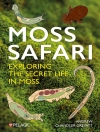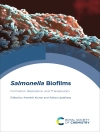This book surveys the models for the origin of life and presents a new model starting with shaped droplets and ending with life as polygonal Archaea; it collects the most published micrographs of Archaea (discovered only in 1977), which support this conclusion, and thus provides the first visual survey of Archaea.
Origin of Life via Archaea’s purpose is to add a new hypothesis on what are called “shaped droplets”, as the starting point, for flat, polygonal Archaea, supporting the Vesicles First hypothesis. The book contains over 6000 distinct references and micrographs of 440 extant species of Archaea, 41% of which exhibit polygonal phenotypes. It surveys the intellectual battleground of the many ideas of the origin of life on earth, chemical equilibrium, autocatalysis, and biotic polymers.
This book contains 17 chapters, some coauthored, on a wide range of topics on the origin of life, including Archaea’s origin, patterns, and species. It shows how various aspects of the origin of life may have occurred at chemical equilibrium, not requiring an energy source, contrary to the general assumption. For the reader’s value, its compendium of Archaea micrographs might also serve many other interesting questions about Archaea.
One chapter presents a theory for the shape of flat, polygonal Archaea in terms of the energetics at the surface, edges and corners of the S-layer. Another shows how membrane peptides may have originated. The book also includes a large table of most extant Archaea, that is searchable in the electronic version. It ends with a chapter on problems needing further research.
Audience
This book will be used by astrobiologists, origin of life biologists, physicists of small systems, geologists, biochemists, theoretical and vesicle chemists.
สารบัญ
Preface ix
Acknowledgements xiii
Abbreviations xv
1 A Fresh Start on the Problem of the Origin of Life 1
2 By the Light of the Moon 33
Richard Gordon and George Mikhailovsky
3 There Were Plenty of Day/Night Cycles that Could Have Accelerated an Origin of Life on Earth, Without Requiring Panspermia 41
Richard Gordon and George Mikhailovsky
4 Emergence of Polygonal Shapes in Oil Droplets and Living Cells: The Potential Role of Tensegrity in the Origin of Life 53
Richard Gordon, Martin M. Hanczyc, Nikolai D. Denkov, Mary Ann Tiffany and Stoyan K. Smoukov
5 When We Were Triangles: Shape in the Origin of Life via Abiotic Shaped Droplets to Living, Polygonal Archaea During the Abiocene 125
6 The Fish Ladder Toy Model for a Thermodynamically at Equilibrium Origin of Life in a Lipid World in an Endoreic Lake 185
Richard Gordon, Shruti Raj Vansh Singh, Krishna Katyal, Natalie K. Gordon and David Deamer
7 How to Make a Transmembrane Domain at the Origin of Life: A Possible Origin of Proteins 229
Richard Gordon and Natalie K. Gordon
8 An Ensemble Approach to the Origin of Life 285
Bradly Alicea, Bashir Ahmad and Richard Gordon
9 A Review of the Archaea First Hypothesis for the Origin of Life 341
10 The Astrobiology of Archaea 363 References 366
11 A Survey of the Battlefield for the Origin of Life 411
12 Bibliometrics of Archaea and Where to Find Them 581
13 Resources 621
14 Compendium of Archaea 639
15 Analysis of Micrographs 1213
เกี่ยวกับผู้แต่ง
Richard Gordon, Ph.D., is a theoretical biologist with a B.Sc. in Mathematics from the University of Chicago and a Ph.D. in Chemical Physics from the University of Oregon, retired from the Department of Radiology, University of Manitoba in 2011. Presently he is a volunteer at Gulf Specimen Marine Lab & Aquarium, Panacea, Florida. Interest in exobiology (now astrobiology) dates from 1960s undergraduate work on organic matter in the Orgueil meteorite with Edward Anders. He has published critical reviews of panspermia and the history of “discoveries” of life in meteorites.












